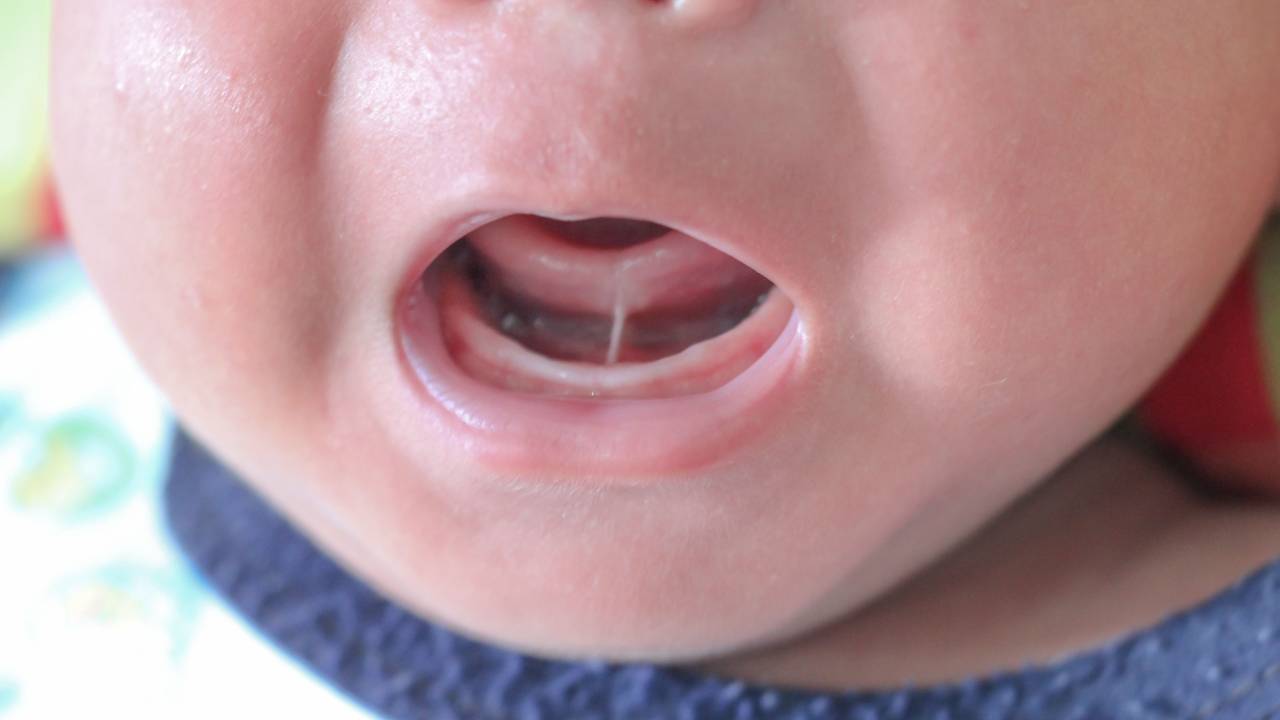Recognising the Signs of Tongue Tie in Infants
Sep 06, 2023
Let's delve into the intricate world of tongue ties in infants. As a seasoned lactation consultant (IBCLC) and Advanced Pediatric Osteopath, I have had the privilege of witnessing firsthand the vital role that a thorough oral assessment plays in identifying tongue ties in newborns, children, and even adults. Tongue tie, medically known as ankyloglossia, refers to a condition where the frenulum, a small band of tissue connecting the tongue to the floor of the mouth, is either too short or too tight, thus limiting the tongue's mobility. This limitation can manifest in various ways, most commonly affecting tongue protrusion, lateralisation, and elevation. In this article, we will explore the telltale signs of tongue tie in infants and underscore the importance of early oral assessments following childbirth.
Recognising the Signs of Tongue Tie in Newborns
-
Difficulty Latching: One of the most prevalent indicators of tongue tie is the struggle to achieve a proper latch during breastfeeding. Newborns with tongue tie often find it challenging to open their mouths wide enough to latch onto the breast effectively, causing frustration for both mother and baby.
-
Poor Weight Gain: Tongue-tied infants may have difficulty transferring milk from the breast, resulting in inadequate weight gain. To ensure your baby's well-being, close monitoring of their weight is crucial. If concerns arise, seeking an oral assessment from a qualified health professional with specialized training in oral ties is essential. It's worth noting that poor weight gain isn't exclusive to babies with oral ties, as it can also occur in cases of maternal oversupply. This further underscores the need for comprehensive assessments that encompass both the baby and mother, looking at both appearance and function, along with a thorough breastfeeding/feeding evaluation.
-
Clicking or Smacking Noises: While nursing, babies with oral ties may produce clicking or smacking sounds. These noises result from the tongue's inability to elevate adequately, which prevents the creation of a proper seal around the nipple and palate, causing air to be drawn in. This issue can also manifest in bottle-fed infants.
-
Fussy or Colicky Behavior: Tongue-tied babies might exhibit fussiness or colicky behavior during or after breastfeeding. This behavior stems from their inability to extract milk efficiently from the breast, frequent detachment from the breast, or constant breaks in suction and seal. These issues can lead to increased air intake (aerophagia), resulting in gas and discomfort.
-
Nipple Pain or Damage: Mothers may experience nipple pain or damage when nursing a baby with a tongue tie. This discomfort arises due to the baby's inability to latch onto the breast properly, often resulting in a shallow latch that causes friction between the nipple/areola complex and the back of the infant's gum. Over time, this repeated friction can lead to nipple damage.
The Importance of Early Comprehensive Oral Assessments
Conducting a thorough oral assessment in the days following childbirth holds significant benefits:
-
Prevention of Breastfeeding Problems: Early identification of tongue tie can help prevent breastfeeding challenges. Lactation consultants can collaborate with mothers and babies to develop strategies to overcome these difficulties stemming from tongue tie.
-
Improved Milk Transfer and Weight Gain: Identifying and addressing tongue tie early on enhances the baby's ability to transfer milk from the breast, ultimately promoting better weight gain.
-
Reduced Pain and Discomfort for the Mother: Treating oral ties can alleviate nipple pain and damage experienced by mothers, offering them much-needed relief.
-
Enhanced Quality of Life for the Baby and Family: Tongue-tied babies may experience fussiness or colic, which can affect both the baby and the family's overall quality of life. Addressing tongue tie can improve the baby's feeding experience, resulting in a happier and healthier family and a prolonged duration of breastfeeding.
It's crucial to consult a healthcare provider well-versed in oral ties and their impact on breastfeeding for a proper assessment. As a lactation consultant, I strongly recommend that mothers have their baby's oral anatomy evaluated early on to identify potential tongue tie issues. By doing so, we can ensure that babies can breastfeed effectively, leading to a joyful and healthy breastfeeding journey for both mother and baby.
For more information, please don't hesitate to call us at 02 4655 5588 or email [email protected]
Our team of Lactation Consultants (IBCLCs) have undergone extensive training and observations with Dr. Reena Murray to provide comprehensive assessments for Oral Ties. If indicated, we can refer you to our network of providers for a frenotomy procedure, and provide you with the necessary support the whole way through the process from pre-release to post-frenotomy aftercare, exercises, and feeding support. This can all be done either in person or via Telehealth.
For those more local to our practice Completely Aligned in Camden, our Osteopaths also work closely with our families post-release to alleviate any remaining tension from oral ties through bodywork.
References:
-
Kotlow, L. A. (2021). Diagnosis and Treatment of Ankyloglossia in Infants with Breastfeeding Difficulties. Journal of Human Lactation, 37(1), 9-20.
-
Coryllos E, Watson Genna C, Salloum AC. (2004) Congenital Tongue-tie and its Impact on Breastfeeding. American Academy of Pediatrics. Summer Newsletter Section on Breastfeeding p1-6.
-
Ingram J, Johnson D, Copeland M, Churchill C, Taylor H, Emond A. (2015) The Development of a Tongue-tie Assessment Tool to Assist with Tongue-tie Identification. BMJ.
-
Siegel, S. (2016). Aerophagia Induced Reflux in Breastfeeding Infants With Ankyloglossia and Shortened Maxillary Labial Frenula (Tongue and Lip Tie). International Journal Of Clinical Pediatrics, 5(1), 6-8.
Take a proactive step towards optimal development by scheduling an appointment – online or in-person. Our team are here to guide you through personalised strategies for your child.
Stay connected with news and updates!
Join our mailing list to receive the latest news and updates from our team.
Don't worry, your information will not be shared.
We hate SPAM. We will never sell your information, for any reason.

